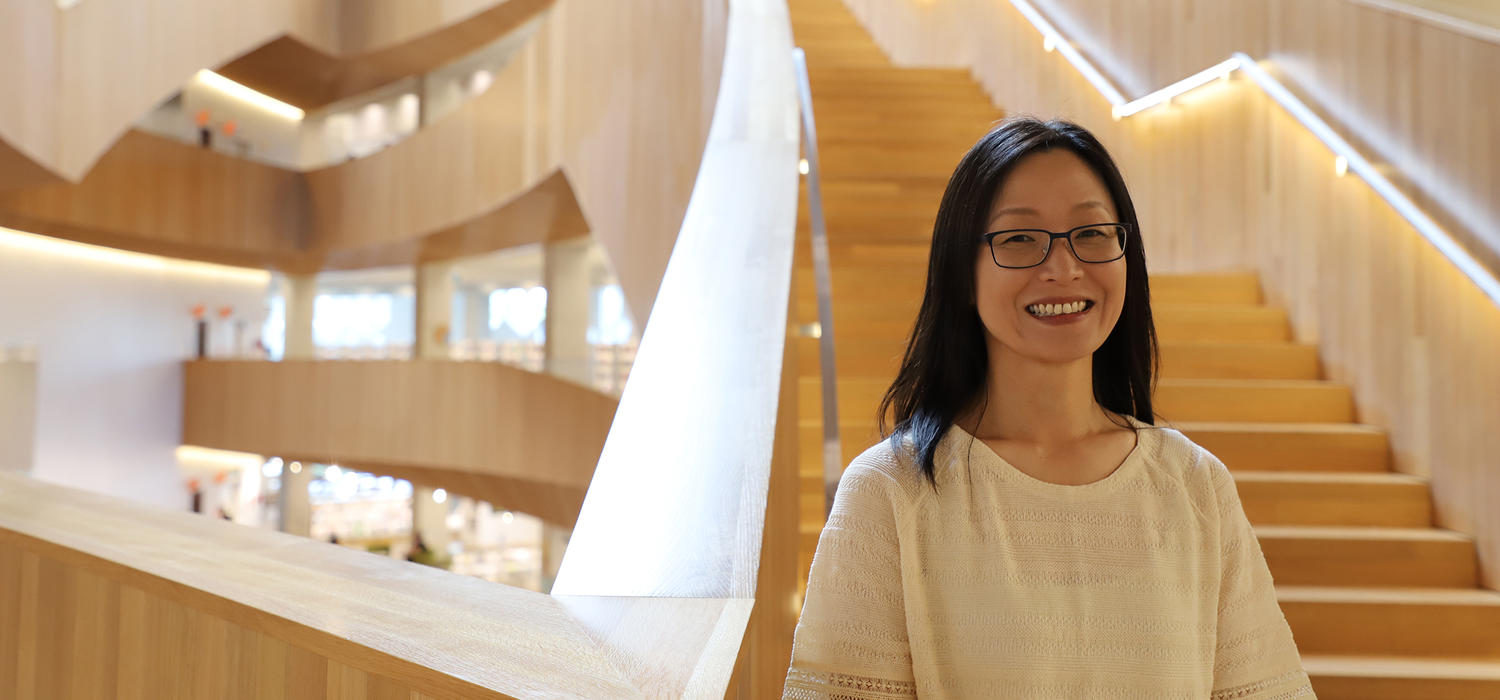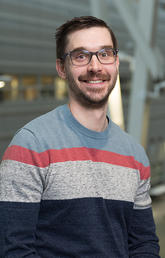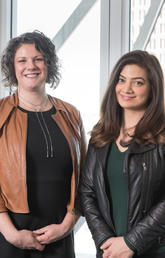July 22, 2020
Tabletop games used as tool for incorporating cultural diversity in the classroom

The immigrant student in the corner. The recently arrived refugee kid quietly working in the back of the class. The exchange student, too shy to participate in discussions. How can these young learners contribute in the classroom as well as their counterparts who speak English as a first language? This question is the driving force behind Dr. Beaumie Kim’s research exploring how playing and redesigning games can engage culturally diverse learners.
Kim, PhD, an associate professor of learning sciences with the University of Calgary’s Werklund School of Education, specializes in research areas around game-based learning and user-centred design.
The Werklund researcher, pictured above, has been awarded a Social Sciences and Humanities Research Council (SSHRC) Insight Grant to examine how user-designed tabletop games (i.e., games with boards, cards, and/or other physical objects) can be used as a resource for culturally relevant learning. Kim’s project is one of 18 successful UCalgary projects receiving SSHRC Insight grants this year.
In her research, Kim seeks to address how diversity can be an opportunity to enhance learners’ educational pursuits, rather than being a barrier to education. This project enables learners to play and redesign tabletop games with peers and adults at libraries in connection with school-based projects.
Community partners are essential piece of the puzzle
In collaboration with educators in the Calgary Public Library (CPL), and teachers and students from the Calgary Board of Education and Calgary Arts Academy, Kim plans to explore how to engage diverse learners’ cultural and linguistic resources for learning through playing, redesigning and sharing tabletop games in informal learning environments, namely the CPL.
For Kim, working with teachers is critical to the project’s success. “I don’t have all the expertise. Teachers in the field, they know about important content and what their learners are struggling with,” she says.
When discussing her partnership with the CPL, Kim stresses the importance of accessibility. “We wanted to work with a space where people don’t have to pay membership or admission but can still have the learning opportunities that we want to develop,” Kim explains. “The library is a space where learners of all ages, cultures and backgrounds can freely access educational resources.”
Library and school closures among challenges to research progress
Due to the close-contact nature of her research, Kim and her partners (including co-applicant Jerremie Clyde, associate librarian, game studies, UCalgary Libraries and Cultural Resources) are re-imagining how to advance their research project in the midst of the COVID-19 pandemic causing the shutdown of schools and libraries.
“When you’re really engaged in the game, you speak loudly, you want to coach other people, you naturally have close interactions,” she explains. “We’re trying to find ways to conduct the research in a family setting, rather than between peers in a classroom.”
Of course, there are other challenges ahead, like emerging technologies and innovation as educational tools.
“While people may be very excited about [the project], sometimes there are new initiatives and technologies that become the focus of teachers and learners in schools. We have to be able to respond to people’s needs and preferences,” says Kim.
Increased opportunities for socialization through tabletop games
For Kim, tabletop games have an intergenerational appeal, provide opportunities for social interactions and are not cost prohibitive for teachers to incorporate into the classroom. The games encourage learning and communication beyond the confines of a shared spoken language.
“…designing and redesigning [the game] in itself is very accessible, as there isn’t a steep learning curve. Learners can experiment with game design by just changing a few rules or adjusting a few parts of the game,” Kim explains.
Stepping stone for cultural understanding
“Games are played across generations, across different cultures and involve game items/props. Regardless of language, communication during gameplay doesn’t require complex vocabulary and players can interact through gestures,” explains Kim.
Kim hopes the research can advance public education by building on diversity, instead of seeing it as an impediment or barrier to success.
“It’s one step towards understanding each other’s culture and appreciating what each person brings from their background as a contribution in school,” says Kim.
Other members of the research project (co-applicants and collaborators) include:
- Jerremie Clyde, associate librarian (game studies), UCalgary Libraries and Cultural Resources
- Kate Schutz, service design, Calgary Public Library
- Stefan Rasporich, Calgary Arts Academy
- Shayla Jaques, Calgary Board of Education
2019-2020 Insight Grants to University of Calgary researchers
The SSHRC Insight program supports research excellence in the social sciences and humanities. The funding is geared to both established research like Kim’s, as well as early-stage research projects. The maximum value of a SSHRC Insight grant is $500,000 over three to five years.
Faculty of Arts
- Adam Bell, School of Creative and Performing Arts: Disability-Led Musical Instrument Design.
- Michael Clark, Department of English: A Cultural History of the Little Guy in America.
- George Colpitts, Department of History: Credit, Gift and Barter in the changing environments of Western Canada, 1821 – 1870.
- Barry Cooper, Department of Political Science: Neolithic Political Symbols.
- Susan Graham, Department of Psychology: The Development of Communicative Perspective Taking: Sensitivity and Flexibility in the Use of Socially-Shared Knowledge.
- Clara Joseph, Department of English: India's Non-Violent Freedom Struggle (1599-1799): The Voice of Thomas Christians.
- David Liebesman, Department of Philosophy: Property Versatility: Motivations and Applications.
- Cara MacInnis, Department of Psychology: The More We Get Together, the More Equality There Will Be? Investigating How Intergroup Contact Can Promote Social Change.
- Sherri Madigan, Department of Psychology: Technological Era and Child-Family Study (TECh Family Study): An Examination of the Role of Technology in Family Interactions and Children's Development.
- Lucija Muehlenbachs, Department of Economics: Costs and Benefits of In-Kind Settlements: Evidence from Environmental Enforcement Cases.
- Melanie Noel, Department of Psychology: Co-Constructing the Past: The Role of Mother- and Father-Child Reminiscing in Children's Socio-Emotional Development.
Haskayne School of Business
- James Agarwal, Dynamic Structure of Country Political Environment and Its Impact on Entrepreneurial Activities.
- Tunde Ogunfowora, Construct Clean Up Time: Moral Character Traits and their Cognitive-Emotional Links to Moral and Immoral Employee Behaviours at Work.
Faculty of Nursing
- Nancy Moules, The Public Face of Grief: Bereavement and Social Media.
- Lorraine Venturato, STILL LIFE: A Slice of Life.
Werklund School of Education
- Miwa Takeuchi, Envisioning Inclusive Mathematics Education with Digital Illustrated Stories.
- Jo Towers, Transforming Mathematical Identities: The Potential for Collective Learning to Create Free Spaces for Mathematics.
The pressures of our rapidly growing global population are driving unprecedented changes in our social, political, cultural and natural systems. The University of Calgary’s Human Dynamics in a Changing World research strategy is addressing our need to understand how we adapt to rapid change, to ensure our security and quality of life.




